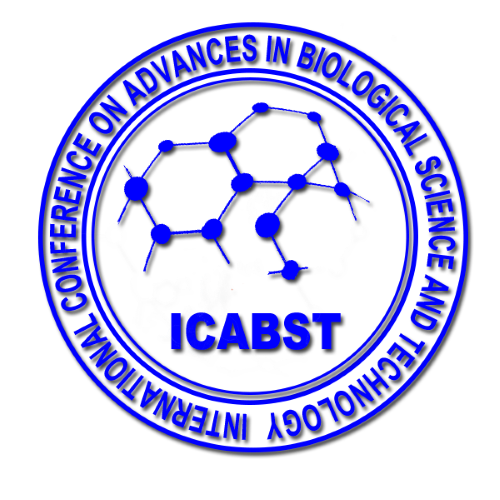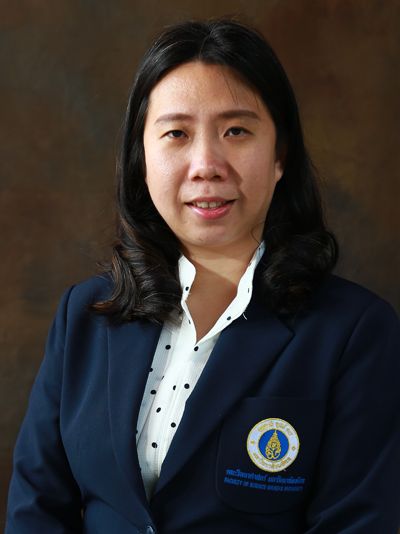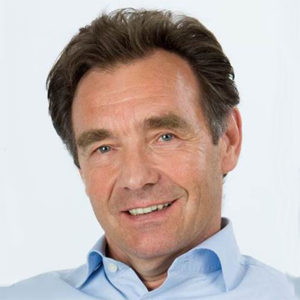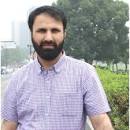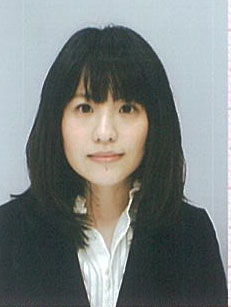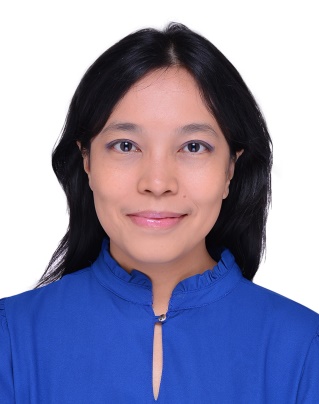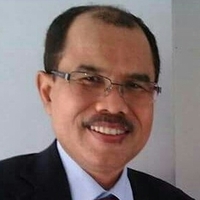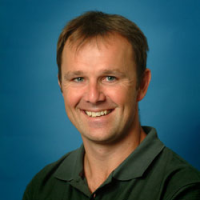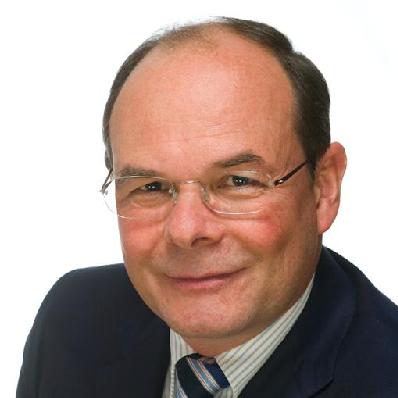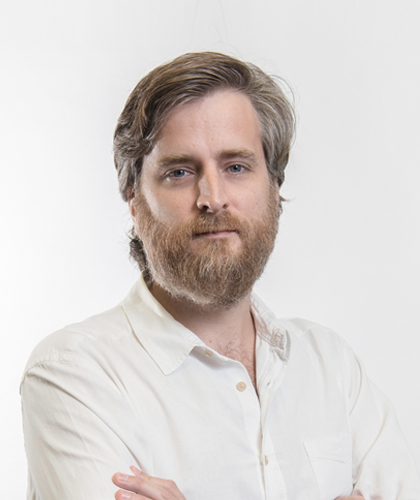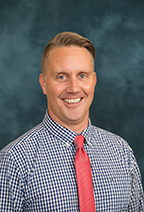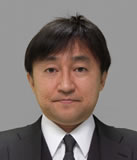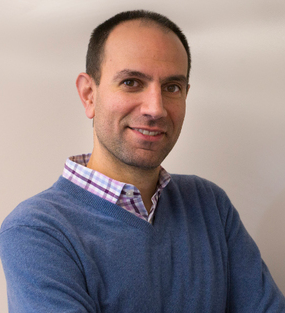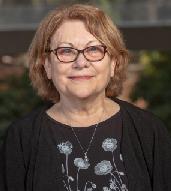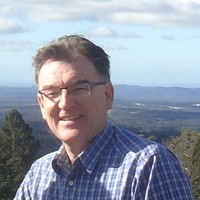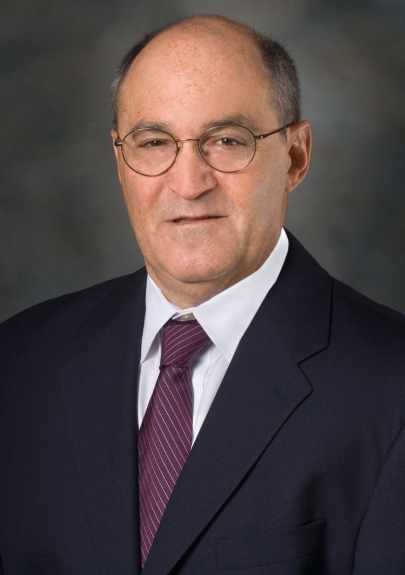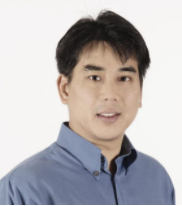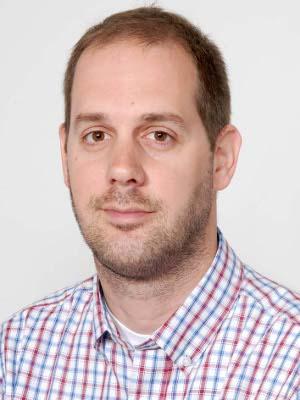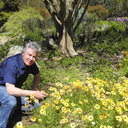Speaker List
All colleagues are welcomed to submit abstracts and make oral/poster presentations at ICABST2019! All oral presentations are to be delivered in English, and will be duration of 20-25 minutes. We will select qualified oral presentations after review. More qualified speakers will be announced soon after confirmation. To be a speaker of ICABST2019, please submit your abstract at an early date.
* Please be aware that we will NOT contact speakers / participants in in authoritative way regarding their travel and accommodations.
* Please keep in mind the authorities’ contact: icabst@apanse.com; Tel: +86 371 63226982.
- Prof. Hadi Shafiee
- Brigham and Women's Hospital, Harvard Medical School, USA
- Short Summary: Dr. He received his Ph.D. in Biomedical Engineering and Mechanics from Virginia Polytechnique Institute and State University in 2010. After receiving trainings in the development of devices for cell sorting and pathogen detection at Virginia Tech and Harvard-MIT Division of Health Science and Technology, he started his own lab at BWH, HMS in 2014. Dr. Shafiee’s lab strives to develop innovative diagnostic tools to address unmet clinical challenges through integrating biology/medicine, micro- and nanotechnology, consumer electronics, and artificial intelligence. His work has been recognized by some of the major news outlets including CNN, theguardian, Boston Globe, CBS News, STAT, New York Times, etc. He has mentored more than 60 postdoctoral research fellows, and undergraduate and graduate students.
- Presentation Title: Mobile Health Diagnostics with Applications in Medicine
- Prof. Emeritus Gil Navon
- School of Chemistry, Tel-Aviv University, Israel
- Short Summary: Prof. Emeritus Gil Navon focuses on Chemical and Biomedical Applications of NMR and MRI; Application of chemical exchange saturation transfer (CEST) MRI for imaging of tumors; NMR and MRI methods for the study of connective tissues (cartilage, tendon and intervertebral disc); Multinuclear spectroscopic MRI of nerves; New MRI pulse sequences for quantitation of myelin and of liver fibrosis. He has over 300 peer-review publications with the over 8000 citations
- Presentation Title: Molecular Imaging of Breast Cancer by Chemical Exchange Saturation Transfer MRI of Glucose Analogs
- Dr. Pornpun Vivithanaporn
- Associate Professor Dr. of Chakri Naruebodindra Medical Institute, Faculty of Medicine Ramathibodi Hospital, and Pharmacology graduate program, Faculty of Science, Mahidol University, Thailand
- Short Summary: Dr. Pornpun Vivithanaporn focuses on the research of Neuroimmunology, Neurotoxicology, Neurovirology and Cancer pathogenesis. She got her Ph.D. (Pharmacology) in University of Texas Medical Branch, USA. And her current research is Glia cells: inflammation and cancers.
- Presentation Title: The potential of leukotriene receptor antagonists as anticancer drugs
- Dr. Johann Lechner
- Head of Clinic for Integrative Dentistry Munich, Germany
- Short Summary: Dr. Lechner was trained at Dental University Munich, Germany. Since 1980 head of Clinic for Integrative Dentistry/Munich. Member of the executive board of the DAH (German Association for Research on Disturbance Fields and Regulation) and for 25 years chairman of science of GZM (International Society for Holistic Dentistry). He is the founder of ICOSIM (International College of Maxillo-Mandibular Osteoimmunology). Numerous lectures at international congresses, universities and medical organizations (i.e. Bern, Switzerland; Vienna, Austria; Washington DC, USA; Sao Paulo, Brazil; Beijing and Shanghai, China.)
- Presentation Title: Chemokine RANTES/CCL5 from Jawbone Cavitations - Hidden Interface to Many Systemic-Immunological Diseases detactable by Radiation free Ultrasonography
- Prof. Taisun Kim
- Department of Chemistry, Hallym University, Korea
- Short Summary: Prof. Taisun Kim got his Chemistry Ph.D. in University of Texas, Austin, United States. He was occupied the dean of the Department of Chemistry by 2013-2015. And now he is the CEO of Biometrix Technology Inc., Bioventure Plaza, Chuncheon, Korea. Currently his research focuses on Infectious disease, Cancer, and Dementia.
- Presentation Title: 6 HCV Genotyping 9G testTM for highly accurate screening and genotyping of six HCV genotypes including HCV 1a, 1b, 2, 3, 4 and 6(6a, 6f, 6i and 6n)
- Dr. Takashi Jin
- Riken Center for Biosystems Dynamics Research, Japan
- Short Summary: Dr. Takashi Jin is the team leader of Laboratory for Nano-Bio Probes in Riken Center for Biosystems Dynamics Research. His research team develops novel nano-bio probes for visualization of molecular and cellular dynamics in biological systems. They have synthesized a variety of nano-bio probes such as single-molecule imaging probes using quantum dots, cellular environment sensitive probes, and cellular state controllable probes using external magnetic fields.
- Presentation Title: BRET-based dual-colour molecular imaging using a quantum dot and EGFP-luciferase conjugate
- Prof. Dr. Sardar Khan
- Department of Environmental Sciences, Director Advanced Studies, University of Peshawar, Pakistan
- Short Summary: Dr. Sardar khan is working as Professor , department of Environmental sciences, University of Peshawar. He completed his Ph.d in environmental sciences. He also worked as Associate professor in University of Peshawar. He was awarded by Research productivity award of B (2016-17) Category by Pakistan Council of Science. He has over hundred papers published with the total impact factor of 300.
- Presentation Title: TBD
- Dr. Shiori MINABE
- Laboratory of Anatomy, Nippon Medical School, Japan
- Short Summary: Dr. Shiori MINABE got the PHD in School of Bioagricultural Sciences, Nagoya University. She was Assistant Professor in Graduate School of Agricultural and Life Sciences, The University of Tokyo. Her current themes are Fetal programing of Neuroendocrine reproductive functions & Neuroendocrine mechanism of obesity-induced infertility.
- Presentation Title: Neonatal exposure to estrogen causes irreversible infertility via specific suppressive action on hypothalamic Kiss1 neurons
- Dr. Imelda Rey
- Gastroentero-Hepatology Division, Internal Medicine Department, Universitas Sumatera Utara, Adam Malik General Hospital, Indonesia
- Short Summary: Dr. Imelda Rey is a staff/lecturer in Internal Medicine Department, Medical Faculty, Universitas Sumatera Utara, as well as the Ministry of Reseach, Technology and Higher Education of The Republic of Indonesia. And she works as a stuff in Adam Malik General Hospital (Indonesia) and internist at Internal Medicine Department, Gastroentero-Hepatology division.
- Presentation Title: Association of Serum Tumor Necrosis Factor-α with the Severity of Liver Cirrhosis
- Prof. Sulaiman Ngongu Depamede
- Mataram University, Indonesia
- Short Summary: Sulaiman Ngongu Depamede has completed his PhD from The University of Adelaide, South Australia. Besides being a Lecturer at the Faculty of Animal Science of Mataram University, he is also a Chairman of Immunobiology Laboratory, Mataram University (2005-2015); he now serves as Secretary of the Consortium for Research Large ruminants. His research in the last five years focused on the proteomics of Bali cattle (Bos javanicus) saliva. He has published his research papers in reputed journals.
- Presentation Title: Development of lateral flow assay for detecting Hepatitis B surface Antigen (HBsAg) based on nucleotide hybridization techniques
Previous APANSE Speakers (From other APANSE Conferences)
- Prof. Gerard A. Ateshian
- Andrew Walz Professor and Chair of Mechanical Engineering & Professor of Biomedical Engineering, Columbia University, USA
- Short Summary: Gerard Ateshian performs research in the field of soft tissue mechanics, with an emphasis on cartilage mechanics, lubrication, and tissue engineering, and the formulation of growth theories for biological tissues. Ateshian is particularly interested in formulating continuum mechanics theories that accommodate the complexities encountered in living biological tissues and cells, including mass transport, osmotic effects, and reactive mechanics in solid mixtures, needed to describe tissue growth and remodeling.
- Prof. Martyn Nash
- University of Auckland, New Zealand
- Short Summary: The primary focus of Martyn's research career has been on bioengineering analyses of the heart in order to understand mechanisms and events underlying cardiac electro-mechanical activity in health and disease. He develops and applies novel and efficient computational tools in order to interpret the variety and vast quantity of biological recordings that are available from laboratory and clinical studies. Martyn strives to apply this research to facilitate (i) the development of improved medical imaging, biomedical devices and diagnostic techniques, and (ii) the discovery and monitoring of therapies for prevention and treatment of disease, and better management of patient care.
- Prof. Gerhard A. Holzapfel
- Norwegian University of Science and Technology (NTNU), Trondheim, Norway
- Short Summary: Gerhard A. Holzapfel is Adjunct Professor at the Norwegian University of Science and Technology (NTNU), Faculty of Engineering Science and Technology, Trondheim, Norway. He is also Professor of Biomechanics and Head of the Institute of Biomechanics at Graz University of Technology (TUG), Austria, since 2007, and Visiting Professor at the University of Glasgow, Scotland. Until 2013 he was Professor of Biomechanics at the Royal Institute of Technology (KTH) in Stockholm, Sweden, for 9 years (7 years as an Adjunct Professor). After his PhD in Mechanical Engineering in Graz he received an Erwin-Schrödinger Scholarship for foreign countries to be a Visiting Scholar at Stanford University (1993-95).
- Dr. Florent Ginhoux
- Singapore Immunology Network (SIgN), Agency for Science, Technology and Research (A*STAR), Singapore
- Short Summary: Florent Ginhoux graduated in Biochemistry from the University Pierre et Marie CURIE (UPMC), Paris VI, obtained a Masters degree in Immunology from the Pasteur Institute in 2000 and his PhD in 2004 from UPMC, Paris VI. As a postdoctoral fellow, he joined the Laboratory of Miriam Merad in the Mount Sinai School of Medicine (MSSM), New York. In 2008, he became an Assistant Professor in the Department of Gene and Cell Medicine, MSSM and member of the Immunology Institute of MSSM. He joined the Singapore Immunology Network (SIgN), A*STAR in May 2009 as a Junior Principal Investigator. He is now a Senior Principal Investigator and an EMBO Young Investigator and his laboratory is focusing on the ontogeny and differentiation of macrophages and dendritic cells in both humans and mice.
- Dr. Thomas Braun
- Professor Of Biostatistics, University of Michigan, USA
- Short Summary: Thomas Braun received his Ph.D. in Biostatistics from the University of Washington in 1999 and joined the University of Michigan faculty that same year. Dr. Braun's current research interests include: (1) adaptive Phase I trial design methodology, including optimizing schedule of adminstration, accomodating patient heterogeneity, and incorporating multiple toxicity grades; (2) methodology for modeling tooth-level and site-level correlation of teeth in longitudinal dental and periodontal studies, including multivariate longitudinal modeling of clinical attachment level (CAL), pocket depth (PD), and bleeding on probing (BOP), as well as multivariate longitudinal clustering of those outcomes as predictors of site-specific and subject-average progression of oral disease.
- Prof. Dr. Kenji Yasuda
- Tokyo Medical and Dental University, Japan
- Short Summary: Prof. Dr. Kenji Yasuda received his PhD degree in Physics from Waseda University, Japan in 1995. Then, he studied Biophysics as a researcher in Advanced Research Laboratory, Hitachi Ltd. Japan until 1999. From 1999 to 2006, he was an associate professor (and full professor from 2006) in University of Tokyo. In 2005, he was also a visiting professor in Genome Technology Center (Prof. R. Davis) at Stanford University for developing nano pipette-based post genome measurement technology. From 2006 to date, he has been a professor in Tokyo Medical and Dental University and PI of a national project of human induced pluripotent stem (iPS) cells for drug discovery technology development. From 2008 to date, he also has been a PI of the research team in Kanagawa Academy of Science and Technology (KAST) to develop the on-chip technologies for characterizing single cells within the networks.
- Dr. Benjamin Shaby
- Assistant Professor, Pennsylvania State University
- Short Summary: Benjamin Shaby was a postdoc with Cari Kaufman at UC Berkeley. His previous stop was in Durham at the Statistics and Applied Mathematical Institute (SAMSI) and Duke University. He did the Ph.D. work in Statistics at Cornell University with David Ruppert and Marty Wells.Before starting at Cornell, he spent his undergrad years at Stanford. Then he spent two great years working for Chris Field at the Carnegie Institution's Department of Global Ecology, studying inverse problems and the global carbon cycle. He is currently an Assistant Professor in the Statistics Department and the Institute for CyberScience at Penn State, where he started in 2013.
- Prof. Hermona Soreq
- Alexander Silberman Institute of Life Sciences, Hebrew University, Israel
- Short Summary: Hermona Soreq is the Charlotte Slesinger Professor of Molecular Biology at the Hebrew University’s Alexander Silberman Institute of Life Sciences and the Edmond and Lily Safra Center for Brain Sciences. A leader in the field of cholinesterase activities and their functions in the brain and periphery, Soreq won honorary PhD degrees from Stockholm (1996), Erlangen-Nuremberg (2007) and Beer-Sheva (2007) as well as an Israeli Ministry of Health Prize (2000), Landau Prize for Biomedical Research (2005), Teva Prize for Molecular Medicine (2006), The Rappaport Prize for Biomedical research (2014), the Katzir Prize for Life Sciences, 2017), the Lise Meitner Alexander Humboldt Research Prize, 2009, an advanced ERC award and two proof-of-concept ERC awards, 2013-2018 and a Neuroinflammation award, 2016.
- Prof. John Hamill
- Professor Sustainable Agricultural Systems at Deakin University, Centre for Regional and Rural Futures (CeRRF), Australia
- Short Summary: John Hamill is currently with Deakin University, Geelong , Australia where, in 2013, he was appointed as Professor of Sustainable Agricultural Systems in the newly formed interdisciplinary research Centre for Regional and Rural Futures (CeRRF). Prior to this he spent more than 20 years at Monash University as a full Professor in the area of Plant Genetics, Tissue Culture and Bio-Technology with a research focus on specialized metabolism (particularly alkaloids), extreme drought tolerance in resurrection plants and, more recently, production of therapeutic proteins and vaccines in transgenic plant systems.
- Prof. Peter F. Thall
- The University of Texas MD Anderson Cancer Center, USA
- Short Summary: He is the Anise J. Sorrell Professor in the Department of Biostatistics at M.D. Anderson Cancer Center, where he has been a Science Faculty member since 1990. He is an author of over 220 papers and book chapters in the statistical and medical literature, and co-authored the 2016 book " Bayesian Designs for Phase I-II Clinical Trials". He has designed hundreds of clinical trials in numerous areas of oncology, including leukemia, sarcomas, stem cell transplantation, cellular therapy, prostate cancer, kidney cancer, thoracic surgery, and brain tumors. His research areas include Bayesian statistics, clinical trial design, medical decision analysis, and dynamic treatment regimes.
- Prof. Leslie Y. Yeo
- RMIT University, Australia
- Short Summary: Prior to joining RMIT, he was a Mathematical Modeller at Det Norske Veritas UK and a postdoctoral research associate in the Department of Chemical & Biomolecular Engineering at the University of Notre Dame, USA, after which he held a faculty position at Monash University. He was the recipient of both the Australian Research Fellowship and Future Fellowship from the Australian Research Council from 2009 to 2017. Leslie is best known for his work on acoustically-driven microfluidics and is the Editor-in-Chief of the American Institute of Physics journal Biomicrofluidics.
- Prof. Vassilios Kapaklis
- University of Uppsala, Sweden
- Short Summary: Vassilios Kapaklis has an extensive experience in the magnetism of amorphous materials, low-dimensional structures and mesoscopic systems. He leads a group with a strong focus on the magneto-optical properties of magneto-plasmonic systems and ordering and dynamics of mesoscopic spin systems. The research is funded by the Knut and Alice Wallenberg Foundation, as well as the European Union.
- Prof. Alvaro Viljoen
- Tshwane University of Technology, South Africa
- Short Summary: His research interest includes the phytochemistry and biological activity of medicinal and aromatic plants indigenous to South Africa. Using a metabolomics approach his group aims to resolve various challenges in the pharmacognostic exploration of South Africa’s ethnomedicinal flora. In 2017 he was appointed at the Editor-in Chief of the Journal of Ethnopharmacology. In October 2013 he was awarded the National Research Chair in Phytomedicine a position which he hold concurrently as Director of the SAMRC Herbal Drugs Research Unit in South Africa.
Important Dates
Abstract Deadline: Nov. 20, 2019
Reg. Deadline: Nov. 30, 2019
Acceptance: 7-10 working days
Conf. Date: Dec. 26-28, 2019
Contact
Secretary: Jason Sun, Alex Liu
Email: icabst@apanse.com
Phone: 86-0371-63226982
Mobile: +86-18137471420
Wechat: APANSE
